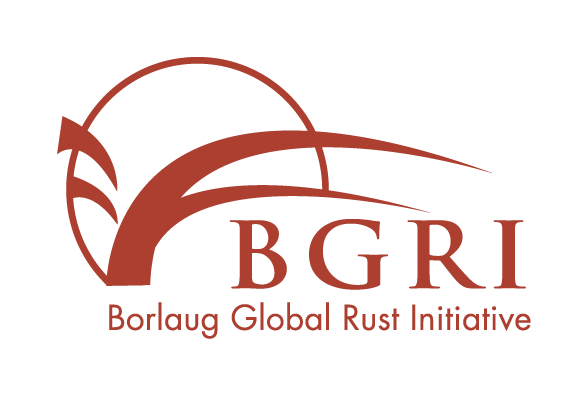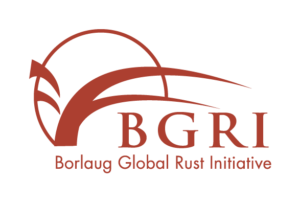Building resilience in the face of growing challenges to global wheat security
Keynote address
Wheat in fields of war
Alison R. Bentley
International Maize and Wheat Improvement Center (CIMMYT), Texcoco, Mexico
Soviet artist Yevgeny Vuchetich’s famous sculpture “Let Us Beat Swords into Plowshares” has stood in the garden of the United Nations in New York City since 1959. Donated by the Soviet Union during the Cold War it draws on the Old Testament Book of Isaiah (2:4) depicting the transformation of weapons of war into tools of creation and new life. Its symbolism is a reminder of both the link between conflict and agriculture, and the necessity to transition from destruction to creation to build peace. Six months since the start of the war in Ukraine the world has seen significant and extreme impacts on the citizens of Ukraine as well as in the wider international community. The war in Ukraine, overlayed on the long historical context linking conflict to food insecurity, inequality and social instability and the urgent threats of climate change present a world on the cusp of a humanitarian food crisis. Urgent action is needed to mitigate the short-term food security effects of the war in the Ukraine and wheat import dependent countries and to set the course to agricultural resilience. In the longer-term society must work collectively to achieve an equitable collective global grain store.
Plant Breeding Session
- De Novo Assembly and Phasing of Dikaryotic Genome from isolate 18SPA92-1 of Puccinia graminis f. sp. tritici
- Unravelling the molecular basis of the largest stem rust resistance allelic series in wheat
- QTL mapping of seedling and field resistance to stem rust in DAKIYE/Reichenbachii durum wheat population
- Flash talk: Cross kingdom mobility of miRNA depicting strong Wheat-Puccinia communication: a prospective approach to combat wheat leaf rust disease
De Novo Assembly and Phasing of Dikaryotic Genome from isolate 18SPA92-1 of Puccinia graminis f. sp. tritici
Erena Edae, University of Minnesota
ContactUnravelling the molecular basis of the largest stem rust resistance allelic series in wheat
Jianping Zhang, CSIRO
ContactQTL mapping of seedling and field resistance to stem rust in DAKIYE/Reichenbachii durum wheat population
Shitaye Megerra, EIAR
ContactCross kingdom mobility of miRNA depicting strong Wheat-Puccinia communication: a prospective approach to combat wheat leaf rust disease
Uzma Afreen, Birla Institute of Technology, Mesra
ContactGene Stewardship Award
Instituto Nacional de Investigaciones Forestales Agrícolas y Pecuarias (INIFAP)
The 2022 Gene Stewardship Award recognizes the wheat team from Mexico’s National Institute for Forestry, Agriculture and Livestock Research (INIFAP) for their long-term contribution to Mexican wheat cultivation and their efforts to expand impacts worldwide by emphasizing durable rust resistance.
The INIFAP team focused on research and breeding adult plant resistance (APR) to leaf rust and has released many resistant varieties, which led to the stabilization of leaf rust in bread wheat. The team includes:
- Julio Huerta Espino (cereal breeder and pathologist)
- Héctor Eduardo Villaseñor Mir (cereal breeder)
- René Hortelano Santa Rosa (cereal breeder)
- Eliel Martínez Cruz, (cereal chemist)
- María Florencia Rodríguez García (cereal pathologist)
- Ernesto Solís Moya (wheat breeder)
- Jorge Iván Alvarado Padilla (wheat breeder)
Pathogen Surveillance Session
- Global surveillance summary
- Irrigation can create new green bridges that promote rapid intercontinental spread of the wheat stem rust pathogens
- Races of the stem rust pathogen in Ethiopia in 2014 - 2021
- Flash talk: Multi-Locus Sequence Analysis revealing Population and Genetic diversity of Fusarium graminearum species complex in India
- Flash talk: Wheat commercial cultivars deployment strategy as a tool to efficiently manage prevalent diseases notably rusts in Morocco
Irrigation can create new green bridges that promote rapid intercontinental spread of the wheat stem rust pathogens
Catherine Bradshaw, Met Office (UK)
ContactRaces of the stem rust pathogen in Ethiopia in 2014 – 2021
Pablo Olivera, University of Minnesota
ContactFlash talk: Multi-Locus Sequence Analysis revealing Population and Genetic diversity of Fusarium graminearum species complex in India
Noyonika Kaul, Indian Institute of Wheat and Barley Research
ContactPowerPoint presentation file
PowerPoint fileFlash talk: Wheat commercial cultivars deployment strategy as a tool to efficiently manage prevalent diseases notably rusts in Morocco
Ramdani Abdelhamid, INRA
ContactWomen in Triticum (WIT) Awards
The WIT awards recognize talent and dedication from both early career women scientists and those who have excelled at mentoring women working in wheat and its nearest cereal relatives. The WIT Early Career Award provides early career women working in wheat with the opportunity for additional training, mentorship, and leadership opportunities. The WIT Mentor Award recognizes the efforts of men and women who have played a significant role in shaping the careers of women working in wheat and demonstrated a commitment to increasing gender parity in agriculture.
The 2022 WIT Early Career Award winners are: Samira El Hanafi (Morocco); Rizky Kirana (Indonesia); Shitaye Megerssa (Ethiopia); Charlotte Rambla (Italy); Umara Sahar Rana (Pakistan); Jianping Zhang (China).
The 2022 WIT Mentor Award winner is: Parveen Chhuneja (India)
Climate Resilience / Abiotic Stresses Session
- Optimizing non-photochemical quenching (NPQ) performance in flag leaves and wheat spikes to improve performance under heat stress
- Environmental change modulates host resistance in Triticum aestivum and its interaction with Puccinia graminis f.sp. tritici
- Flash talk: The wheat stem rust resistance gene Sr43 encodes an unusual protein kinase
Optimizing non-photochemical quenching (NPQ) performance in flag leaves and wheat spikes to improve performance under heat stress
Liana Acevedo Siaca, CIMMYT
ContactEnvironmental change modulates host resistance in Triticum aestivum and its interaction with Puccinia graminis f.sp. tritici
Keshav Sharma, USDA-ARS
ContactFlash talk: The wheat stem rust resistance gene Sr43 encodes an unusual protein kinase
Sundeep Kumar, ICAR-National Bureau of Plant Genetic Resources
ContactBreeding and Variety Adoption Technologies
- Predicting farmer uptake of innovation on ‘Biofortified Wheat Variety’ for Seed Production – An application of the Adoption and Diffusion Outcome Prediction Tool (ADOPT)
- Integrating genomic prediction and crop growth models to predict non-reference individuals for unmeasured traits in unobserved environments and future climates
Predicting farmer uptake of innovation on ‘Biofortified Wheat Variety’ for Seed Production – An application of the Adoption and Diffusion Outcome Prediction Tool (ADOPT)
Sendhil R, Pondicherry University
ContactIntegrating genomic prediction and crop growth models to predict non-reference individuals for unmeasured traits in unobserved environments and future climates
Abdulqader Jighly, Agriculture Victoria
ContactRonnie Coffman – Saving the World’s Wheat
Ronnie Coffman, vice chair of the BGRI, has helped bring together more than 2,500 scientists from 35 international institutions in 23 countries since co-founding the BGRI with Norman Borlaug. By forging a global collaborative community, the combined might of those partners averted the catastrophic consequence of a stem rust epidemic that threatened one of humanity’s most important food crops. In August 2022, Coffman was elected professor emeritus of plant breeding and genetics at Cornell University’s College of Agriculture and Life Sciences.
The 2022 BGRI Virtual Technical Workshop is made possible through the Accelerating Genetic Gains in Maize and Wheat (AGG) project supported by the Bill & Melinda Gates Foundation and the UK’s Foreign, Commonwealth and Development Office.





